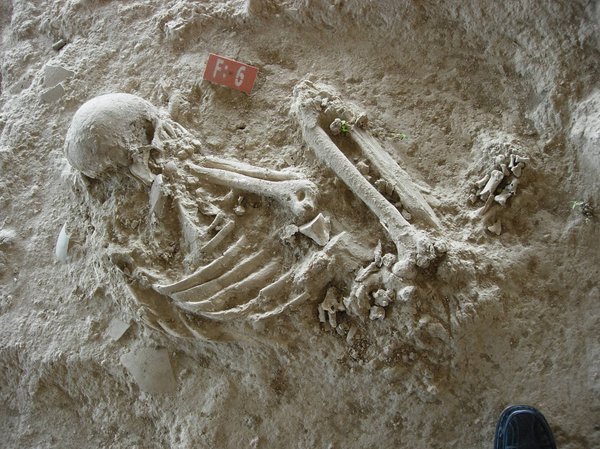
Submitted 15 February 2019 by Joanna Szymczak
Field school sexual harassment policy: https://eige.europa.eu/gender-based-violence/regulatory-and-legal-framework/legal-definitions-in-the-eu/poland-sexual-harassment

The field school is a joint project of the University of Kashan (Iran), Iranian Center for Archeological Research (ICAR) and the University of Warsaw (Poland) in Estark-Joshaqan in central Iran. It offers students the opportunity to participate in excavations at an exciting Iron Age cemetery and to learn how to properly handle excavated ancient human skeletons through cleaning, documentation and scientific analyses. During afternoon lectures students will learn basics of bioarchaeology and develop practical skills in human osteology.
Lecture subjects 1. Bioarchaeology 2. Human osteology 3. Ethics in bioarchaeology 4. Exploration, documentation and sampling of human remains 5. Age-at-death and sex assessment 6. Analysis of non-metric traits and pathologies 7. Biochemical analysis of bones and teeth 8. Bone and tooth histology 9. Cremation 10. Ancient DNA
The course is destined for students and graduates in archaeology, anthropology or biology, but also people interested in the past with no prior experience in excavations. Five students from abroad and six Iranian students will be accepted. Each participant will receive a certificate.
The total price for the field school is 1200 Euros and includes lectures in bioarchaeology, field training, food and accommodation for 3 weeks of fieldwork, transportation from the Tehran Imam Khomeini International Airport to Kashan University Campus, as well as the 5-day tour to the most famous archaeological and historical sites and monuments mainly in the Esfahan and Fars provinces.
Detailed information can be found on the website: http://www.antropologia.uw.edu.pl/en/summer-school-iran/overview.html. Questions and applications should be sent to Javad Hoseinzadeh (email: [email protected], Skype ID: javad.hoseinzadeh1).
Copyright © 2024 American Association of Biological Anthropologists.
Site programming and administration: Ed Hagen, Department of Anthropology, Washington State University